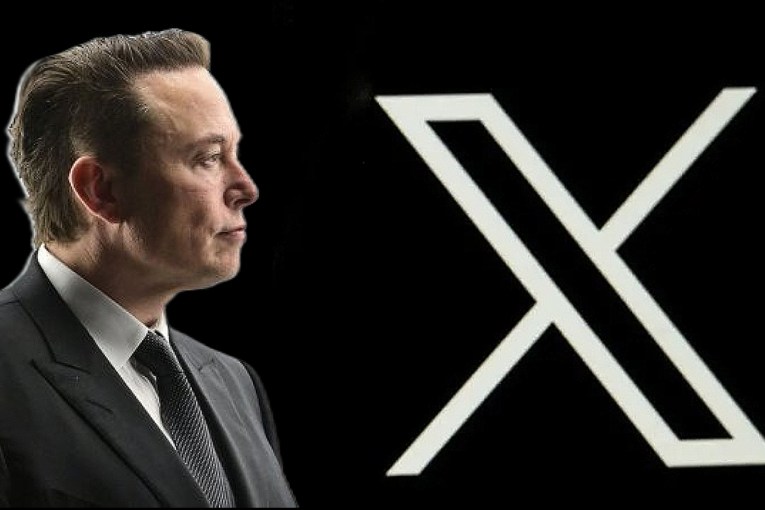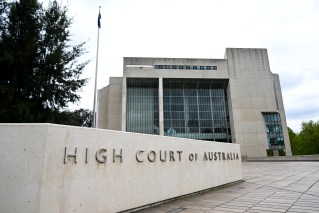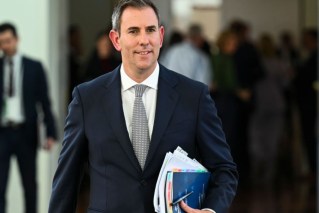Why we shouldn’t swallow the FTA sales pitch


The Abbott government is being hypocritical and inconsistent in arguing that Labor and the unions should immediately get on board with the China free trade agreement.
The government committed to the deal in November 2014, during the official visit to Australia by the Chinese President Xi Jinping.
But it only released the full text of the China FTA documents in June this year, seven months after the trumpet fanfare over its signing.
• Why Aussie youths can’t get a job
• Jewish leaders slam Abbott’s Nazi comments
• Australia at ‘no risk’ of recession: Hockey
The enabling legislation for treaties is usually introduced into federal parliament when the Joint Standing Committee on Treaties (JSCOT) releases its report on the agreement.
With the China FTA, JSCOT has rightly assumed there will be a lot of public interest in the deal and has set its reporting date for October 19.

The Australia-China FTA was signed amid huge fanfare.
Now, that leaves the government with a quick turnaround of meeting its aim of getting the treaty up by the end of this year.
But the main point is that the government has the numbers on JSCOT and this is the timetable it has agreed on.
At the outset of the JSCOT inquiry, the committee chairman, LNP politician Wyatt Roy, said that free trade agreements were intended to reduce barriers to trade for Australian producers and exporters.
“However, the committee understands that there are some serious questions regarding the impact of these agreements on the broader economy and it is interested in hearing from a range of witnesses on the possible positive and negative aspects of implementing this agreement,” he said.
So, are Labor and the unions supposed to sign up before this committee reports on the costs and benefits of the China FTA?
A little extra on the side
This assessment is needed because the government only revealed the existence of a “side letter”, which will streamline the skills assessments applied to Chinese workers coming into Australia on 457 visas.
In July, an employer group, the National Electrical and Communications Association (NECA), said in a submission to the JSCOT inquiry that it only learned about the changed policy on Chinese electricians when the “side letter” was published.

Failure to consult with affected industries has left safety concerns hanging over the FTA, says the National Electrical and Communications Association.
“Given the critical importance of skills assessment, standards and safety with respect to Australian licensing standards, NECA asserts that consultation with any of the affected sectors would have been appropriate,” the submission said.
“Indeed, prior consultation would have been beneficial for both the government and industry such that industry would have an opportunity to engage and provide feedback and suggestions.”
Overall, NECA is supportive of the China FTA, but it argues that vigilance on licensing standards and safety are paramount and must be maintained.
The side letter removes Chinese workers from a list of countries whose citizens require mandatory skills assessments before obtaining a 457 visa in certain occupations, including electricians.
NECA says the Department of Foreign Affairs and Trade has explained that Chinese workers applying for a 457 visa will have to satisfy the Department for Immigration and Border Protection that they have the skills and experience for their nominated occupation.
DFAT has reportedly said the processing officer can order a further skills assessment and, importantly, that Chinese electricians on this visa would still need to be licensed in the state or territory they work in.
Cautious approval
Another employer group, the Master Builders Association, is supportive of the China FTA, but is also cautious on the issue of skills and qualifications.
The MBA says that Chinese 457 workers will still have to demonstrate to the Department of Immigration and Border Protection that they have the requisite skills and experience to work in particular occupations.

There are still questions around the skills and qualifications required for 457 workers in the building industry.
It recommends this should be done through gathering evidence such as qualifications, memberships of relevant professional/trade bodies, references and documents showing English language skills.
But the MBA notes that a 457 visa will not guarantee licensing in the states and territories, and that Australians should “have first priority to employment and training opportunities.”
The proposed China FTA has a memorandum of understanding (MOU) which will allow new Chinese-owned projects worth more than $150 million to bring in their own workers under temporary visa programs.
Note, the MOU says that labour market testing MAY be required, not that it WILL be required.
So, if the Abbott government wants to defuse the attack by Labor and the unions on the China FTA, they should make a definitive statement that labour market testing WILL be required by direct employers on IFA projects.
This proviso could be included in the enabling legislation for the China FTA, which is expected in October.
In the meantime, the Abbott government should prepared to convince voters that “ChaFTA” really does stack up.
Dangerous
Executive director of the Victorian Automobile Chamber of Commerce Geoff Gwilym says there is a skills shortage in his industry and his members have no problem with some positions being filled by skilled migration.
“The fact that these workers are not subject to the same tests as local automotive workers is a safety issue for prospective employees and all motorists,” Mr Gwilym told Australian Automotive.
“Where is the government’s engagement with industry? The first industry heard of trades being bartered away is in the press. That is unacceptable.”
Mr Gwilym argued that the FTA undermined Australia’s apprenticeship system, which placed rigour around trades training.
“This new Free Trade Agreement basically says, ‘If you are a mechanic in China, you are a mechanic in Australia’. How does the motorist know if the person working on their vehicle has the necessary qualifications to perform services and repair tasks to a safe standard?”
Mark Skulley is a freelance journalist based in Melbourne. He was a reporter for The Australian Financial Review for almost 19 years, which included a decade covering national industrial relations and the world of work. View all of his columns here.









